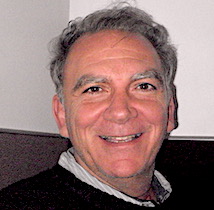Research profile: LeoāPaul Dana
 Since the 1980s, Leo Dana has been researching for and with Indigenous peoples ā those whose ancestors were living in an area prior to colonisation or within a nation-state prior to its formation. He defined Indigenous entrepreneurship as self-employment based on Indigenous knowledge and worked on a team to develop a relevant model.
Since the 1980s, Leo Dana has been researching for and with Indigenous peoples ā those whose ancestors were living in an area prior to colonisation or within a nation-state prior to its formation. He defined Indigenous entrepreneurship as self-employment based on Indigenous knowledge and worked on a team to develop a relevant model.
The focus of Dr. Danaās PhD thesis was First Nations and Inuit. He subsequently embarked on detailed studies of Alaska Native people, Berbers in Morocco, Guarani people in Paraguay, the Mapuche economy in Chile and reindeer herding among the Sami in Fennoscandia.
There is rich heterogeneity among Indigenous peoples and some of their cultural values are often incompatible with the basic assumptions of mainstream theories of entrepreneurship. This makes research very rewarding, especially since Indigenous entrepreneurship often has non-economic explanatory variables. Some Indigenous economies display elements of egalitarianism, sharing and communal activity, contrasting with capitalism as it is known in mainstream society. Indigenous entrepreneurship is usually environmentally sustainable, which often allows Indigenous people to rely on immediately available resources. A function of these resources, work in Indigenous communities is often irregular. Social organization among Indigenous peoples is often based on kinship ties, not necessarily created in response to market needs. Much Indigenous entrepreneurial activity involves internal economic activity with no transaction, while transactions often take place in the bazaar and the informal sector, where enterprises often have limited inventory. Perhaps his most important finding is that the causal variable behind entrepreneurship is not simply an opportunity, but rather oneās cultural perception of opportunity.
Related to his books and journal articles, Dr. Dana researched and produced a documentary, for which he wrote the script and narration, about self-employment among the Indigenous Sami. This was first screened at a film festival in Greenland.
Ģż
